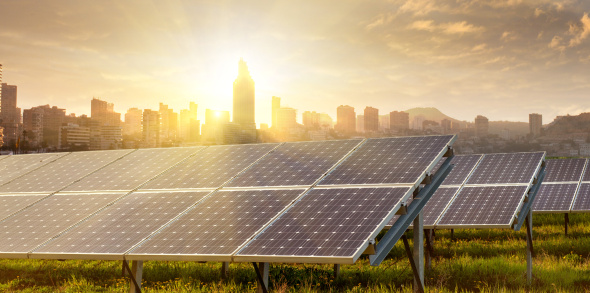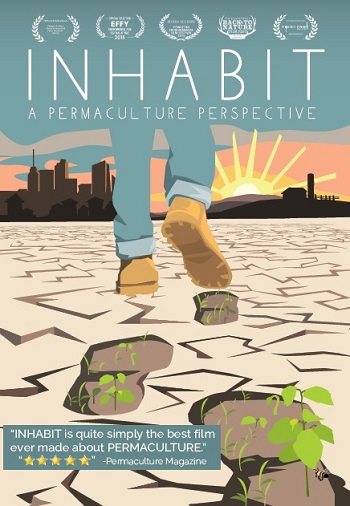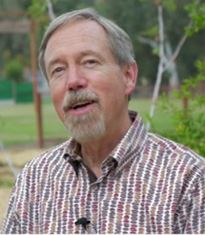Integral Post-Metaphysical Spirituality
Participatory Spirituality for the 21st Century
Integral Energy: Uniting Mulitple Perspectives on our Thermodynamic World
Obviously the title of this discussion is a playful plagiarism of the book on Integral Ecology by Esbjorn-Hargens and Zimmerman. I do believe that the subject of gross physical energy has been woefully under-discussed in the integral community.
A great place to begin is a recent essay by Richard Heinberg that has been received to high acclaim over on the Resilience.org website, which is operated by the Post Carbon Institute, for which Heinberg is a senior analyst. Heinberg has been writing about energy for 12 years, and is the author of books such as Cloning the Buddha: The Moral Impact of Biotechnology; The Party's Over: Oil, War, and the Fate of Industrial Societies; Powerdown: Options and Actions for a Post-Carbon World; Peak Everything: Waking Up to the Century of Declines; Blackout: Coal, Climate and the Last Energy Crisis; The End of Growth: Adapting to our New Economic Reality.
In his latest essay, Our Renewable Future, Heinberg demonstrates that he is what I would call an energy realist. He does not demonize the fossil fuel industry, but he clearly lays out the formidable challenges we face as the climate crisis worsens and as easy access to these fuels continues to recede. Nor does he communicate as would a lobbyist for the renewable energy industry, hyping the benefits and downplaying the problems in this field.
Instead, Heinberg approaches the problems from multiple perspectives and honestly conveys his own biases, and encourages us to broaden our thinking:
I consider myself a renewable energy advocate: after all, I work for an organization called Post Carbon Institute. I have no interest in discouraging the energy transition—quite the contrary. But I’ve concluded that many of us, like Koningstein and Fork, have been asking the wrong questions of renewables. We’ve been demanding that they continue to power a growth-based consumer economy that is inherently unsustainable for a variety of reasons (the most obvious one being that we live on a small planet with finite resources). The fact that renewables can’t do that shouldn't actually be surprising.
What are the right questions? The first, already noted, is: What kind of society can up-to-date renewable energy sources power? The second, which is just as important: How do we go about becoming that sort of society?
As we’ll see, once we begin to frame the picture this way, it turns out to be anything but bleak.
I believe this to be an extremely important essay, and the embedded links provide even more depth, providing a great resource for essential 21st century energy literacy.
- David
Our Renewable Future

Or, What I’ve Learned in 12 Years Writing about Energy
(7000 words, about 25 minutes reading time)
Folks who pay attention to energy and climate issues are regularly treated to two competing depictions of society’s energy options.* On one hand, the fossil fuel industry claims that its products deliver unique economic benefits, and that giving up coal, oil, and natural gas in favor of renewable energy sources like solar and wind will entail sacrifice and suffering (this gives a flavor of their argument). Saving the climate may not be worth the trouble, they say, unless we can find affordable ways to capture and sequester carbon as we continue burning fossil fuels.
On the other hand, at least some renewable energy proponents tell us there is plenty of wind and sun, the fuel is free, and the only thing standing between us and a climate-protected world of plentiful, sustainable, “green” energy, jobs, and economic growth is the political clout of the coal, oil, and gas industries (here is a taste of that line of thought).
Which message is right? Will our energy future be fueled by fossils (with or without carbon capture technology), or powered by abundant, renewable wind and sunlight? Does the truth lie somewhere between these extremes—that is, does an “all of the above” energy future await us? Or is our energy destiny located in a Terra Incognita that neither fossil fuel promoters nor renewable energy advocates talk much about? As maddening as it may be, the latter conclusion may be the one best supported by the facts.
If that uncharted land had a motto, it might be, “How we use energy is as important as how we get it.”...
Tags:
Views: 2339
Replies to This Discussion
-
Permalink Reply by Edward theurj Berge on September 25, 2015 at 12:19pm
-
Indeed. Wilber's Superman BS sounds a lot like the Nazi's superior race BS.
-
Permalink Reply by DavidM58 on September 25, 2015 at 12:32pm
-
And I grow increasing tired and bored with the continual techno-fetishism coming out of Integral Life, with it's comparable artwork. This post is the latest example. Yes, they acknowledge downsides to the technology, but it still comes across to me as a fetish.
-
Permalink Reply by andrew on September 25, 2015 at 12:52pm
-
I think that the most likely result of automation/A.I. in the near future will be unemployment . This coupled with the notion that the most important value a human has is their achievement in the market place is leading us into disastrous territory . Hence , my second economy is premised on minimum healthy levels of existence based on the inherent worth of a human in and of itself . Granted , this 'economy' would have to be educated and perhaps legislated into important ecological behaviour . What I am advocating is not traditional 'socialist' welfare schemes that have always been dysfunctional and unworkable . I am advocating for a different foundational mindset that makes moves pragmatically given the set of complex circumstances we find ourselves in at this time .
-
Permalink Reply by Edward theurj Berge on September 25, 2015 at 4:55pm
-
I'm surprised you still give Integral Life the time of day.
Here's an interesting article reinforcing a common there in this thread. An excerpt:
"Defenders of the status quo would have us believe that ‘green’ capitalism and the ‘information economy’ will usher in a transition to a more ecological future. But, like all the capitalisms of the past, this latest incarnation relies ultimately on the continued and perpetual expansion of its reach, at the expense of people and ecosystems worldwide. From urban centers to remote rural villages, we are all being sold on a way of life that will only continue to devour the earth and its peoples. Today’s high-tech consumer lifestyles, whether played out in New York, Beijing, Bangalore, or the remotest reaches of our human civilisation, aim to defy all meaningful limits, ultimately raising global inequality and economic oppression to previously unimaginable proportions while profoundly destabilising the earth’s ability to sustain complex life.
"The corrosive simplification of living ecosystems and the retreat into an increasingly unstable and synthetic world that Murray Bookchin predicted in the 1960s has evolved from a disturbing future projection to a global reality. Our survival now depends on our ability to challenge this system at its core and evolve a broad, counter-hegemonic social movement that refuses to compromise its values and settle for partial measures. Hopefully such a movement will embrace and continue to expand and elaborate the revolutionary and reconstructive social and political vision of social ecology."
Amen.
-
Permalink Reply by Edward theurj Berge on October 7, 2015 at 9:57am
-
Transition Albuquerque will be showing this film tonight, which I'll attend. Now that some time is freeing up I plan to join this group.

-
Permalink Reply by DavidM58 on October 7, 2015 at 10:14am
-
This is an excellent documentary. For those that don't have a showing near them, it can be watched online. Here is the trailer.
INHABIT: A Permaculture Perspective from Costa on Vimeo.
And once you've seen the film and been inspired, check out Toby Hemenway's new book, The Permaculture City.
The Permaculture City: Regenerative Design for Urban, Suburban, and Town Resilience by Toby Hemenway is a welcome articulation of permaculture applied to cities.
For those of you who’ve read Gaia’s Garden, Toby Hemenway’s first permaculture book (which is the best-selling permaculture book in the world), you know that Hemenway writes in a straight-forward style that is easy to follow and digest, and a pleasure to read. While Gaia’s Garden was a practical permaculture book applied to home-scale gardening, the new book emphasizes from the very beginning that permaculture is not to be understood as a style of organic gardening.
He writes, “Urban permaculture is only slightly about gardening, and mostly about people. The human ecosystem that is the city is rich, and it includes much more than food. To understand, work within, and enhance that ecosystem, we need to understand not just how we feed ourselves in cities and towns but how we meet all our needs. How do we build, move about, use water and energy, feel secure, make decisions, solve problems, sustain ourselves, develop policies, live together?
…We’re not just gardening plants but people, neighborhoods, and even cultures.”
Hemenway defines permaculture as:
“applied ecology; that is, it is a design approach based on finding and applying to our own creations some of the guiding axioms at work in natural ecosystems.”
And as:
“a set of decision-making tools, based on natural systems, for arriving at regenerative solutions to design challenges of all kinds.”Contents
Introduction: Looking at Cities through a Permaculture Lens (read online here)
1. The Surprisingly Green City (read online here)
2. Permaculture Design with an Urban Twist
3. Designing the Urban Home Garden
4. Techniques for the Urban Home Garden
5. Strategies for Gardening in Community
6. Water Wisdom: Metropolitan Style
7. Energy Solutions for Homes and Communities
8. Livelihood, Real Wealth, and Becoming Valuable
9. Placemaking and the Empowered Community
10. Tools for Designing Resilient Cities“Many people who are searching for a more fulfilling life, wanting to reduce their ecological footprint and buld resilience for uncertain futures, grasp that permaculture might be part of the solution but are often unsure how it applies to their particular situation. For residents of towns and cities in the modern affluent world, The Permaculture City shows how permaculture design makes common sense.”
– David HolmgrenHere is an excellent interview with Toby about his new book, posted....
Below is another excellent interview from The Permaculture Podcast with Scott Mann.
-
Permalink Reply by andrew on October 17, 2015 at 5:33pm
-
Rainbows and unicorns from the heart of the neoliberal establishment here in Vancouver :
http://www.vancouversun.com/business/energy/abundant+affordable+ene...
I'd like to clarify that 1850 living is right on the money as far as sustainability goes ; it's 1850 A. Smith economic theories in 2015 that are unsustainable .
-
Permalink Reply by andrew on October 18, 2015 at 10:40pm
-
Hedges on fracking and Gwynn Morgan saying fracking is our salvation :
http://www.truthdig.com/report/item/death_by_fracking_20151018
http://www.theglobeandmail.com/report-on-business/rob-commentary/na...
Hard to know what to say about this..........
-
Permalink Reply by DavidM58 on October 19, 2015 at 10:19am
-
Yes, rainbows and unicorns all the way round in all 3 of the articles on fusion, fracking, and freenewables. There's a saying about fusion: the technology is 20 years out, and always will be.
Abundant energy without cost or consequences is a pipe dream. Morgan has a point about renewables. They aren't free, and they're not as easy to scale up as many proponents claim. They also use a lot of rare earth minerals, so scaling up to a huge scale has some big difficulties. Ted Trainer had it right when he said "renewable energy cannot power consumer society." Which no one wants to talk about - actually downsizing our activity to fit what a renewable energy budget can afford.
Morgan, however, doesn't deal realistically with fracking for natural gas. Sure, natural gas burns cleaner than coal. But there's lots of evidence that when you include all of the processes it takes to frack for that gas, the total greenhouse gases emitted are not much different than that other dirty fossil fuel, coal.
Hedges is a little closer to the truth, but his style is not my thing, creating enemy images everywhere and engaging in lots of hyperbole. I've got friends doing projects with Thomas Linzey and the whole Community Environmental Legal Defense Fund, and I have a number of problems with their approach. Pointing the finger at corporations has some merits, but ultimately it's the culture I think that needs to collectively decide it's time for us all to tighten our belts and reduce our consumption of resources all the way around. We can't have our cake and eat it too with freenewable energy.
In all of this I'm reminded of Omar Khayyam's caution: "only a hair separates the false from the true."
-
Permalink Reply by andrew on October 19, 2015 at 11:29am
-
Good Monday mornin' to ya David ! I was up at 6 casting a strategic vote as my riding is in an apparently close race. My personal quirk for doing so is because I believe it disastrous to have individuals who believe in what I consider false religion ( in this case Christian Zionism ) at the helm in modern technologically advanced nations. In many other ways I am conservative if we define that as to conserve .
I do for the record believe that the Green Party in Canada has the only platform that is anywhere near sustainable; I'll vote for them once again in other elections .
When every other pipe dream fails we may come to the correct decision to create a Global Commons non- debt currency given out in exchange for sound conservative ecological living . Imagine Tiny houses lining Vancouver streets instead of cars parked everywhere . All those Tiny House owners would agree to use every type of nonpolluting transportation in exchange for their basic income . Every Tiny House using compostable toliets .
Of course in the first economy individuals would be legislated by law to use clean technology where it is affordable to them . I figure 1 to 2 billion tops is sustainable within that economy provided across the board eco-laws are passed . That means 4 to 8 billion people in the next 50 years need to be persuaded to create and exist within a Global Commons economy . Along with maintaining a permanent garden on the city streets I would also spend a lot of time trying to get as many holes in one as possible . The point being that the only thing really sustainable in the second economy is myriad types of healthy recreation . There are many of the top 1 percenters in todays economy living that way already .
-
Permalink Reply by andrew on October 19, 2015 at 11:40am
-
Oh yes, on fusion: I find it hilarious that it is neoliberal strongholds ( Vancouver and France-ITER here) that are transferring the wealth of nations to a corrupted elite; espousing this type of pipe dream, that a corrupt 1 % is going to create an energy source that is cheap and renewable in the fusion sense is laughable .
And if you don't believe the Vancouver elite are corrupt then please take a two hour stroll through the lower east side where humans have been discarded to the streets like garbage .
-
Permalink Reply by DavidM58 on October 19, 2015 at 12:30pm
-
Regarding the global commons economy, I always like to quote Peter Pogany, as you know:
"...contemporary civilization is moving toward a new form of self-organization that would recognize limits to demographic-economic expansion. What will it take to go from the current hostile disgust with the dystopia of tightened modes of multilateral governance to people around the world on their knees begging for a planetary guild? It will take nothing less than a mutation in consciousness, as outlined in the oeuvre of Jean Gebser (1905-1973)."
Really interesting, btw, to read Gebser's chapter on sociology and economics in EPO. One economist he saw pointing the way (though not yet integral arational) was Wilhelm Röpke, among others, who offered a "third way" between capitalism and communism after WWII in Germany.
And regarding Vancouver's lower east side, I haven't been there for about 10 years, but I used to frequent it for the jazz clubs in the neighborhood. At that time I felt a lot safer there than I did in Seattle's Pioneer Square area, where there were also good music clubs. I imagine things have gotten worse, however, during the intervening years of Canada's "conservative" turn.
About
This group is for anyone interested in exploring these questions and tracing out the horizons of an integral post-metaphysical spirituality.
Notice to Visitors
At the moment, this site is at full membership capacity and we are not admitting new members. We are still getting new membership applications, however, so I am considering upgrading to the next level, which will allow for more members to join. In the meantime, all discussions are open for viewing and we hope you will read and enjoy the content here.
© 2025 Created by Balder.
Powered by
![]()

